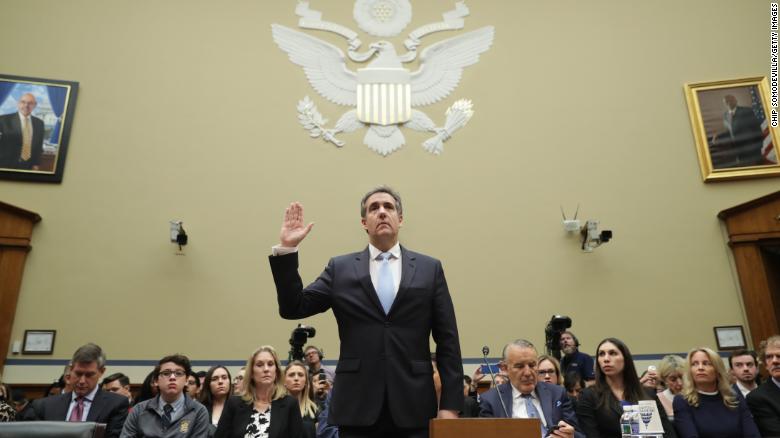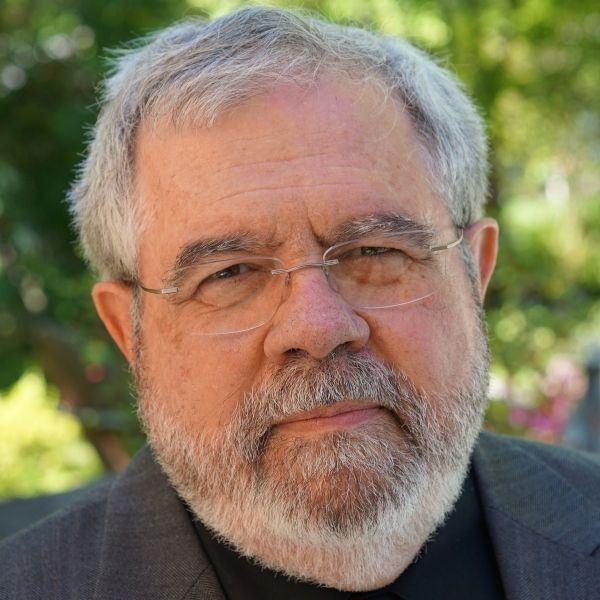But the Democrats Need to Do a Better Job Connecting the Dots
How many crimes did Michael Cohen reveal in his testimony? By my count 14.
If you missed many of the crimes, it’s not surprising. Fascinating as much of his testimony was, Cohen did not articulate the various crimes in an orderly fashion. Instead, he just threw a lot of them out there like so many dots.
And for good measure, he said, in response to a question, that he was not confident that Trump would peacefully transfer power to the next president, which would be a 15th crime if his speculation proves accurate.
Worse, the House Oversight and Reform Committee majority never connected Cohen’s dots into a compelling picture of White House criminal culture—with three notable exceptions that we will get to in a moment.
Scattered among Cohen’s 20-page opening statement and its attached exhibits, together with his hours of public testimony on Feb. 27, was plenty of evidence that Trump is running a criminal organization whose offices and key staff simply moved its headquarters from his Manhattan high rise to the White House.
Cohen revealed 11 kinds of fraud: accounting, bank, charity, insurance, mail, wire, federal income tax, state income tax, local property tax fraud, campaign finance disclosure and federal ethics disclosure.
To those who have followed our coverage of Trump, much of this is not news. But, to the vast majority of Trump supporters, it would be, if the committee had asked questions to give sense and context to Cohen’s revelations.
Luckily for our democracy, this was just the first hearing. Chairman Elijah Cummings, a Maryland Democrat, promised more hearings with witnesses and documents.
Cohen in detail or in passing revealed 11 kinds of fraud: accounting, bank, charity, insurance, mail, wire, federal income tax, state income tax, local property tax fraud, campaign finance disclosure and federal ethics disclosure.
Many of these were overlapping or interconnected. That’s how white-collar crime works. It’s not akin to a crude stickup with a gun, it’s a slight-of-facts designed to fool the gullible, enrich the bribable and to slip through the wide gaps in the weak legal walls Congress has erected to address financial crimes.
Fraud is, everywhere and always, a crime.
Whether any or all of these frauds, assuming they are proven, rise to the political standard in our Constitution of “high crimes and misdemeanors” is yet to be determined. But for sure they are proper subjects of criminal indictment, even if trial must be delayed until Trump is out of office in 2021 or 2025. And, to be clear, we think a sitting president can be indicted while in office—and should be if he has committed serious felonies.
Cohen also accused Trump of suborning perjury. Cohen indicated that others may have worked in concert to mislead election and ethics officials, Congress and voters.
Then there are the denials concerning a Trump Tower Moscow and hush money payments to porn actress Stormy Daniels involved more people. That also raises the specter of conspiracy, which can be a crime.
The Moscow real estate negotiations continued well into the 2016 campaign. That matters because no large project gets done in Russia without the blessing, explicit or tacit, of Vladimir Putin, the modern czar who runs his country with a criminal gang commonly called the oligarchs and a host of lesser crooks.
Lying about the tower gave Putin leverage over Trump, kompromat far more powerful than any supposed videotape of Trump watching hookers wet a hotel bed where the Obamas once slept.
Trump’s previous statements show that Cohen’s testimony about the Moscow real estate deal is accurate. After all, Donald said, if he did not win the presidency, he had a business to run and he was not going to let lucrative opportunities pass him by.
Let that sink in for a moment. In Trump’s mind, national security is secondary to profit, a view that the Star Trek Ferengi would applaud.
According to Cohen, he was instructed to lie to Congress by the person identified in his criminal case as “Individual 1.” Cohen said that person is Donald Trump.
And finally consider the biggest and most disturbing crime of all: conspiring through intermediaries with a hostile foreign power to win the presidential election.
Trump’s intermediary, according to Cohen, was Roger Stone, who boasts of both being a hedonist and a political dirty trickster. Putin’s intermediaries included WikiLeaks.
What we don’t know yet is just how the 12 indicted Russian cyber-military officers were involved, but Robert Mueller’s prosecutors charged with extraordinarily fine detail that they were central to Kremlin interference with our 2016 elections.
During the Feb. 27, hearing we heard a lot of efforts by Republicans to demonize Cohen, but not one word about why Trump would have employed him as his consigliere for more than a decade.
No Republican tried to deny that Trump had done what Cohen said, other than vague assertions that Cohen was lying.
The most illuminating testimony came during the 10 minutes spit between three freshman Democratic lawmakers: Alexandria Ocasio-Cortez of New York and Katie Hill of California and also Raja Krishnamoorthi of Illinois.
They asked pointed questions that elicited useful information about where to pursue more facts. Bravo.
If the Democrats are serious, they will tell members in future hearings by the Oversight and other House committees to stop preening for the cameras and useless recitations of facts known and instead ask what the fictional William Forrester (Sean Connery) called “soup questions” in the film Finding Forrester.
A soup question is designed to elicit information that matters.
Ocasio-Cortez, Hill, and Krishnamoorthi, none of them lawyers, asked concise questions about what matters. They each conducted a better examination of Cohen than any of the committee members who are attorneys.
Let’s hope the veterans in Congress learn from the newcomers because nothing less than the future of our liberty depends on it.





